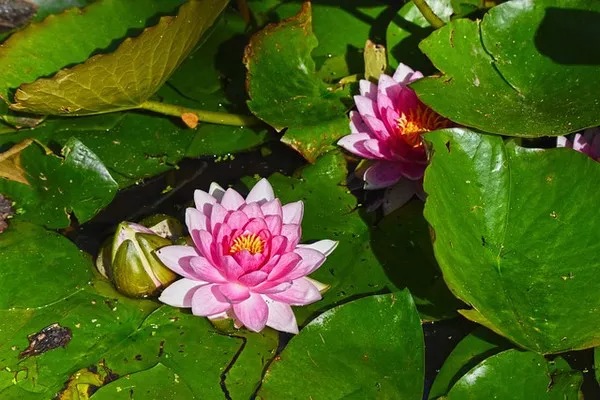Lily flowers, renowned for their enchanting beauty and captivating fragrance, hold a special place in the world of flora. With a rich history and deep cultural significance, lilies are much more than just exquisite blossoms. In this article, we will explore the world of lily flowers and delve into the various meanings and symbolism they carry, making them a favorite choice for various occasions, from weddings to funerals.
The History of Lily Flowers
Lily flowers, scientifically known as Lilium, have a long and storied history that spans across different civilizations and cultures. Their origins can be traced back to ancient Greece, where they were associated with the Greek goddess Hera. In Greek mythology, lilies were said to have sprung from the milk of Hera, and they symbolized purity, motherhood, and rebirth.
In Christian symbolism, lilies are often associated with the Virgin Mary, symbolizing her purity and virtue. The Archangel Gabriel is often depicted offering a lily to Mary in Annunciation scenes, reinforcing the connection between lilies and the divine.
Lilies are also prominent in Chinese culture, where they symbolize good luck, prosperity, and abundance. They are often given as gifts during weddings, as they are believed to bring happiness and unity to the couple.
The Meaning of Lily Flowers
Lilies have been assigned a multitude of meanings and symbolism throughout history and across different cultures. These meanings have evolved over time and can vary, depending on factors such as the lily’s color and context. Here are some of the most common meanings associated with lily flowers:
Purity and Innocence: White lilies, in particular, are often seen as symbols of purity and innocence. They are often used in wedding bouquets to represent the purity of the bride and the new beginnings of married life. In Christianity, the Madonna Lily is a symbol of the Virgin Mary’s purity.
Motherhood and Fertility: Lilies have been associated with motherhood and fertility for centuries. Their elegant and gentle appearance reflects the nurturing qualities of a mother, making them a fitting choice for baby showers and other celebrations of motherhood.
Death and Funerals: While lilies symbolize life and renewal in many cultures, they also have a connection to death and funerals. In some European cultures, white lilies are often used in funeral arrangements, signifying the innocence and purity of the departed soul. The Easter Lily, a special variety of lily, is used in memorial services for deceased loved ones.
Passion and Love: The red lily, also known as the “passion lily” or “love lily,” represents love, desire, and passion. It is often exchanged between couples to convey their deep affection and love for each other.
Transcendence and Renewal: Lilies are often associated with transcendence and renewal, as they are perennial plants that bloom year after year. Their ability to withstand challenging conditions and return each spring has made them a symbol of resilience and the renewal of life.
Wealth and Prosperity: In some Asian cultures, lilies are believed to bring good luck, wealth, and prosperity. They are often given as gifts to wish someone success and abundance.
Lily Flower Varieties and Their Meanings
There are numerous lily varieties, each with its own unique characteristics and symbolism. Let’s take a closer look at some of the most popular lily types and their meanings:
Calla Lily: Known for their elegant and trumpet-shaped flowers, calla lilies symbolize beauty, sophistication, and purity. They are often used in weddings and bridal bouquets.
Stargazer Lily: With its bold and striking appearance, the stargazer lily represents ambition and reaching for the stars. It is often associated with success and aspirations.
Tiger Lily: The distinctive orange petals of tiger lilies evoke a sense of courage and confidence. They symbolize wealth and pride in some cultures.
Daylily: Daylilies are often linked to coquetry and flirtation. They signify playful emotions and romantic pursuits.
Madonna Lily: As mentioned earlier, the Madonna Lily is closely associated with the Virgin Mary and represents purity, chastity, and motherhood.
Easter Lily: Easter lilies are typically associated with the Christian holiday of Easter and symbolize resurrection and the promise of new life.
Lily of the Valley: Lily of the Valley is a delicate and fragrant flower that represents sweetness and the return of happiness. It is often used in wedding bouquets and signifies a happy and prosperous future.
Peace Lily: The peace lily, also known as Spathiphyllum, symbolizes peace, tranquility, and spiritual harmony. It is often used as a sympathy flower for funerals.
Cultural Variations in Lily Symbolism
It’s important to note that the meanings and symbolism of lilies can vary significantly between cultures and regions. While we’ve explored some common interpretations, it’s essential to consider the cultural context when giving or receiving lilies. Here are a few examples of how lily symbolism differs in various cultures:
China: In Chinese culture, lilies are associated with good fortune and abundance. They are often used as wedding flowers and symbolize happiness and unity.
Japan: In Japan, the white lily is a symbol of truth and enlightenment. It represents the purity of heart and soul.
France: In France, lilies are often associated with royalty and nobility. The fleur-de-lis, a stylized lily, is a symbol of the French monarchy.
Greece: In ancient Greece, lilies were linked to the goddess Hera and symbolized motherhood, fertility, and rebirth.
Conclusion
Lily flowers have a long and diverse history, with meanings and symbolism that have evolved over time and across cultures. Whether they represent purity, motherhood, passion, or renewal, lilies continue to be a beloved choice for various occasions, from weddings and baby showers to funerals and religious ceremonies. Understanding the rich symbolism and cultural variations of lilies can help us appreciate these elegant blooms on a deeper level, making them even more special in our lives. So, the next time you receive or gift a lily, remember the profound significance and beauty they carry.

